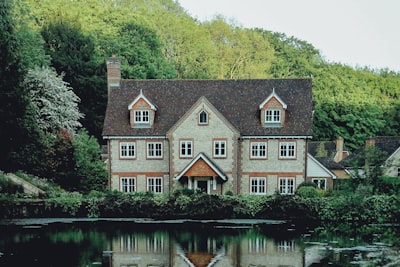It Pays to Understand Your Homeowners Insurance Premium
Have you ever wondered how homeowners insurance premiums are calculated? Many people don't really think much about it. They may assume it is what it is, and that coverage will be there when they need it. It is a good idea, however, to understand the factors that go into calculating the price of insurance premiums. This way, you can be sure you have all the necessary coverage.
Knowing what affects your premium is especially helpful when you are in the market for a home. For example, if that beautiful home that seems perfect for you is located in a high crime area, it could significantly affect your overall costs due to increased risk. 
Calculating the Premium
Homeowners insurance premiums are calculated based on various risk factors associated with the home. Higher risk means the insurance company is more likely to have to pay a claim, so a higher premium is charged. Conversely, lower risk means a lower premium. Listed below are factors that are used to determine homeowners insurance premiums.
The Home Structure
Dwelling coverage pays for repairing or rebuilding the home if it’s damaged or destroyed by a covered hazard, such as fire or wind damage. Part of this coverage is determined by calculating the square footage of the house relative to local construction costs.
Homes less than ten years old pose less of an insurance risk than older homes, and this is reflected in the premium. Impact resistant roofing materials, such as steel or aluminum, may receive a credit with some providers. The home's electrical system may be a factor with some providers, who may charge more for an older home which has a fuse box instead of circuit breakers.
Location
Homes in densely populated areas pose a greater risk and are likely to be more costly to insure. Other factors that determine risk are the distance from the house to fire hydrants and fire departments. High crime areas also make the house more likely to bring crime related claims, such as vandalism and burglary.
Expect higher premiums if the home is located in an area prone to severe weather conditions. If the home is located in an area known for earthquakes, flooding or mudslides, your homeowners policy is unlikely to cover any disaster-based damages. Insurance coverage for these events must be covered separately.
Other Factors to Consider
If you own items of high value, such as jewelry, antiques, fine art and electronics, you may want to increase coverage in case of loss, since there is a limit on payouts for such items.
Insurance premiums may cost more if you have a swimming pool, trampoline, certain breeds of dogs or other items that increase risk.
Discounts Can Save You Money
Adding safety features, such as smoke detectors and alarm systems, may qualify you for a discount. Bundling home, car and other coverage under the same provider can significantly lower your premium, as well as making your various policies easier to manage.
The right coverage provides peace of mind. Call Ashlie Fortune Insurance LLC at (910) 455-5582 for more information on Jacksonville home insurance.